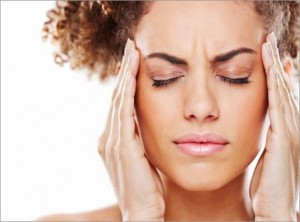Are you always craving for a piece of candy or a bar of chocolate? You may need to watch what you’re eating because this is one indication that you may need to change your diet.
There are many diets that can help you regain your taste for healthy foods. One of them is the popular Cookie Diet. It sounds delicious but actually this diet is very hard to maintain although it can really reduce your weight.
Being difficult to sustain, it can even lead to psychological stress because of the disruption it will inflict on your normal body functions.
As a result, these hard-to-do diets seldom provide long term results. They are no more beneficial than temporary attractions that induce you to buy fitness products or enroll in exercise programs that really don’t provide lasting effects.
In addition, these types of diets may cause uncomfortable symptoms or even actual health problems. Therefore, you need to know if you are already showing these symptoms so that you will realize that it is now time for you to overhaul your diet.
Here are some of the signs that will tell you if you need to change your eating plan:
1. Lightheadedness and headache
 Diet plans that are not well-balanced could lead to hypoglycemia, or low blood sugar. The symptoms for this condition include shakiness, dizziness and panic-attack-like sensations, such as palpitations.
Diet plans that are not well-balanced could lead to hypoglycemia, or low blood sugar. The symptoms for this condition include shakiness, dizziness and panic-attack-like sensations, such as palpitations.
2. Gastrointestinal issues
There are some detox diets that promise increased energy, radiant skin, and a healthy colon. However, they are too stringent that they may also cause diarrhea, bloat, cramps and gas. Detox diets and cleansing programs boast that they will naturally eliminate the toxic contents inside your intestines. But oftentimes, the excessive bowel movements they may create is bordering to abnormal levels.
The liver is the organ that purifies and cleanses all the toxic or unnecessary substances that pass through the body, thus making detox diets unnecessary. A simple and easier diet change coupled with the right exercises in gyms such as Bally Total Fitness or Planet Fitness is what you may need to reduce weight.
3. Irritability and ‘hangriness’
If your diet lacks the necessary calorie intake, it can cause the downshifting of your blood sugar levels. You will experience roller-coaster mood swings. Diet programs which are lower than 1,200 calories per day for women and 1,500 daily calories per day for men may be nutritionally inadequate.
If your diet plan is like this, it will leave you tired and hungry. It will cause you to be impatient than what you really are as a person.
4. Weight gain
Diets that severely restrict food consumption may lead you to overeat later. Therefore, you will only defeat your objective of reducing your weight.
This is proven by a 2014 study conducted by JAMA. The study revealed that severe calorie restriction increases hunger and causes the metabolism plummet at the same time.
As you get hungrier, the temptation for you to slip and eat something really high in calories will be very high, at the time when your fat-burning engine is slowing.
In addition, not taking meals could lead to an increase in belly fat storage. It might even lead to insulin resistance, increasing your risk for type 2 diabetes and heart disease.
5. Cravings
You will be required to give your 100% commitment to a no-carb or no-fat diet. These diets require you to avoid complete food groups. But more often than not, restrictive diets fail because you’ll be missing all your favorite foods and you will feel hungry most of the time.
If you will try to cut your calorie intake, and you are carb-lover all your life, it would not take long for you to crave for your favorite foods and be tempted to go back to your old eating habits.
6. Dehydration
A lot of people are not aware that whenever they are irritable, weak and feeling tired, it may be caused by dehydration and not simply because they are hungry.
Although cleansing programs and juicing diets may provide sumptuous amounts of liquids, this situation can lead to stomach cramping, bloat and diarrhea. The reason is that juices contain excessive amounts of raw fruits, vegetables, and aloe.
If you persist on taking these types of diets, you may end up losing more fluid than the amount you are taking in. This will lead to dehydration. The degree of the symptoms may depend on your sensitivity to the diet you are taking. However, if you are always getting thirsty, that’s a sign that you are already getting dehydrated.
In choosing a diet program, just remember that you will live by it every day at least during the time that you are trying to reach your weight objective. A diet plan is the way for you to get healthy, not to produce symptoms of emaciation.
